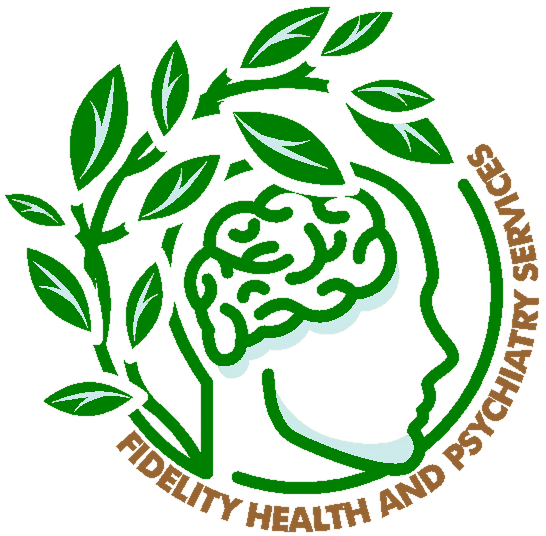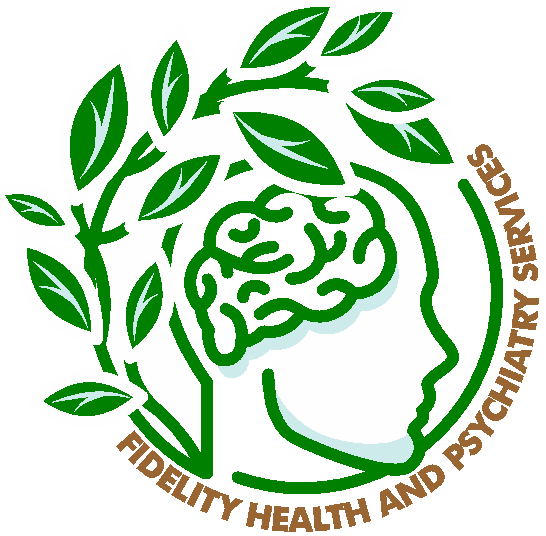PTSD

PTSD Services in Katy, TX
PTSD Therapy in Katy, Texas
Post-traumatic stress disorder (PTSD) frequently affects military veterans, but it also impacts about 7% of adults who have experienced traumatic events in everyday life. The expert team at Fidelity Health and Psychiatry Services in Katy, Texas, has extensive experience in treating PTSD and helping adults manage anxiety, flashbacks, and intense emotions. With comprehensive telemedicine services, they provide accessible PTSD care to residents across Texas. To schedule an appointment, call the office or request one online today.
How PTSD Treatment Can Help You
Our PTSD therapy in Katy, Texas, is designed to provide the support and guidance needed for long-term recovery. Treatment can help individuals by:
- Identifying and processing traumatic memories in a safe environment
- Developing effective coping strategies for stress and emotional distress
- Reducing avoidance behaviors and emotional numbness
- Improving self-esteem and rebuilding confidence
- Encouraging a sense of hope and empowerment for the future
PTSD FAQs: Everything You Need To Know
What Is PTSD?
PTSD develops after experiencing, witnessing, or prolonged exposure to a traumatic or highly stressful event.
The traumatic events most often triggers PTSD include:
- Military combat
- Gun-related violence
- Domestic abuse
- Robberies
- Accidents (such as car, plane, or boat crashes)
- Physical or sexual assault
- Emotional abuse
- The death of a loved one
- Natural disasters like earthquakes, floods, or tornadoes
You can also develop PTSD by learning that a close friend or family member has gone through a traumatic event.
What Symptoms Are Associated With PTSD?
It’s normal to feel anxious after a traumatic event, but these feelings should gradually lessen over time. If intense emotions persist for more than a month, it might indicate PTSD.
Along with ongoing anxiety, PTSD can cause:
- Nightmares
- Flashbacks
- Anger and irritability
- Guilt and shame
- Trouble sleeping
- Depression
- Social withdrawal
- Difficulty concentrating
- Avoidance: which involves deliberately avoiding people, places, and activities that might trigger memories of the trauma. This need to escape reminders can be so strong that it interferes with daily activities and responsibilities, such as work or routine tasks.
What Causes Sudden Flare-Ups Of PTSD Symptoms?
During a traumatic event, your brain records the details, like smells, sounds, and other sensations. However, you don’t remember them because your brain tucks them away in your subconscious.
Eventually, you will encounter one of those details as you go about your daily life. Then, the detail triggers your subconscious bringing back vivid memories of the trauma. This sudden recollection of the traumatic event can evoke intense emotions and reactions that can be difficult to manage.
How Is PTSD Managed And Treated?
Fidelity Health and Psychiatry Services, your provider creates a personalized treatment plan tailored to your specific symptoms and any related conditions often linked with PTSD, such as insomnia or depression.
PTSD treatment typically involves medication, therapy, or a combination of both. Antidepressants may be prescribed by your provider to address core symptoms of PTSD, helping to alleviate feelings of anger, sadness, or worry. Additionally, your provider might recommend other medications to manage more challenging symptoms like anxiety or agitation.
Various types of therapy can also be effective, helping you process your emotions, understand your memories, and develop coping strategies to manage triggers.
If your PTSD symptoms don’t improve or worsen, contact Fidelity Health and Psychiatry Services or request an appointment online today.

